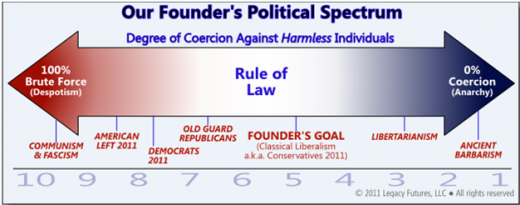
Lies. Fake news. Ideology. Hard liners.
True believers. Understanding conspiracy fears / theories, and knowing when conspiracies are real.
Bigotry begets bigotry when our President practices it.
Violence begets violence, especially when our President promotes it.
Prejudice and racism begets . . .
You get the point don't you? Tweety Twump is a sponsor of a lot of bad attitudes.
Can sociology answer why there is so much cruelty in the world? Psychology?
Many people ask this question. William Blum does not appear to dig into the deeper questions of why government do what they do, why religions do what they do, etc.
How many people do dig deeper for reasons to understand this ugly world?
For one, one conservative, conspiracy believer author I have read, I find W. Blum writings and ramblings useful to inspire thought, but not dialogue. He is severely impaired ideologically IN MY OPINION.
I'm not trying to slam William, but Blum is dogmatic. That doesn't help us with solutions.
He does not appear to see through his own argument that all in America is evil except its people, or seemingly bad acts that may have actually a good cause. Good deeds OFTEN flow from selfish motivations.
Blum argues in staccato fashion, point-point-point-point-point, stringing tighter commentary, without trying to prove his point, but rather to drum beat his argument into your head.
I am not a sheep looking for a shepherd. I have my own mind, whether Blum or his ilk, wants to believe it or not. I like Fareed Zakaria.
"War Criminals: Theirs and Ours"
I suppose if I had lost the war, I would have been tried as a war criminal. Fortunately, we were on the winning side.
– US General Curtis LeMay, commander of the 1945 Tokyo fire bombing operation
https://williamblum.org/chapters/rogue-state/war-criminals-theirs-and-ours
"On December 3, 1996, the US Justice Department issued a list of 16 Japanese citizens who would be barred from entering the United States because of “war crimes” committed during the Second World War. Among those denied entry were some who were alleged to have been members of the infamous “Unit 731”, which, said the Justice Department, “conducted inhumane and frequently lethal pseudo-medical experiments – on thousands of … prisoners and civilians,” including mass dissections of living humans. Oddly enough, after the war the man in charge of the Unit 731 program – whose test subjects included captured American soldiers – General Shiro Ishii, along with a number of his colleagues, had been granted immunity and freedom in exchange for providing the United States with details about their experiments, and were promised that their crimes would not be revealed to the world. The justification for this policy, advanced by American scientists and military officials, was, of course, the proverbial, ubiquitous “national security”.
Apart from the hypocrisy of the Justice Department including Unit 731 members on such a list while protecting its leaders, we are faced with the fact that any number of countries would be justified in issuing a list of Americans barred from entry because of “war crimes” and “crimes against humanity”."
Blum then provides a long list of Americans, he hopes, or at least believes, should be indicted for war crimes.
"America’s democracy has become illiberal"
By Fareed Zakaria Opinion writer
December 29, 2016
"Two decades ago, I wrote an essay in Foreign Affairs that described an unusual and worrying trend: the rise of illiberal democracy. Around the world, dictators were being deposed and elections were proliferating. But in many of the places where ballots were being counted, the rule of law, respect for minorities, freedom of the press and other such traditions were being ignored or abused. Today, I worry that we might be watching the rise of illiberal democracy in the United States — something that should concern anyone, Republican or Democrat, Donald Trump supporter or critic."
"The Sociology of Conspiracy" By Karen Sternheimer
"
Sociologists refer to conspiracy theories as a form of collective behavior, something that we engage in together that gains traction as it appeals to many people. Similar to urban legends, rumors, and panics, sociologists seek to understand how and why groups create meaning through claiming that conspiracies have taken place.
The creation of the Internet has definitely helped grease the wheels of collective behavior. One of the most fascinating things about collective behavior is that it often starts from the grassroots level, from everyday people rather from those in positions of power. In fact, the very distance from the centers of power fuels conspiracy theories.
Let’s think about some other conspiracy theories: some people claim that the Holocaust never happened; perhaps the most famous conspiracy theory is based on the premise that President John F. Kennedy’s assassination was the work of insiders.
The public’s willingness to entertain such theories differs tremendously. For most people, even questioning the reality that millions of civilians were murdered during World War II is incredibly offensive. But there’s something about Kennedy’s assassination that makes millions question the findings of the Warren Commission Report. Why does one conspiracy theory seem outlandish while another one seems plausible?
The imbalance of power is a key ingredient. It is not hard to believe that a powerful regime or dictator could slaughter a group of people with little or no social power, as sadly has happened over and over again in human history.
But the opposite is much harder to believe: an individual or group with little power harming someone with significantly more power and status doesn’t make sense. It challenges what we think we know about the social order."
Be aware! Beware!
